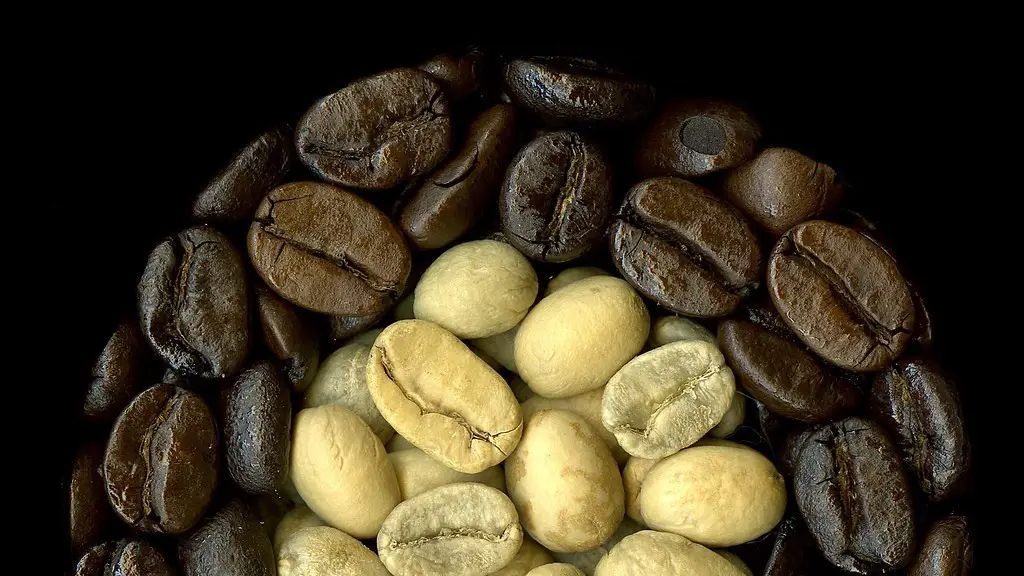Coffee is a great go-to beverage for athletes, packed with benefits that are essential for physical performance and recovery. With more and more athletes consuming caffeine, the question arises: should athletes drink coffee?
Coffee contains around 100mg caffeine per 8fl oz cup, depending on the type of coffee and brewing method. On average, this is a moderate dose of caffeine that can have both positive and negative effects. The concentration of caffeine in coffee varies depending on the country of origin and brewing method.
In terms of performance, caffeine can help athletes improve their performance during exercise. Studies indicate that caffeine has positive effects on reaction time, strength, and endurance. Caffeine can also reduce perception of effort and fatigue during prolonged exercise, enhancing physical performance. Furthermore, some studies suggest that caffeine can enhance cognitive performance, such as memory and attention.
In addition, caffeine can also be beneficial for recovery. Studies suggest that caffeine can reduce muscle soreness, improve recovery markers, and enhance muscle glycogen storage. Caffeine can also improve mood and alertness, which may be beneficial for athletes who need to stay motivated and focused.
However, there are potential drawbacks to drinking coffee. The stimulating effects of caffeine can interfere with sleep quality and quantity, which may be detrimental to athletes. Poor sleep can have an adverse effect on performance, recovery, and overall health. Furthermore, high doses of caffeine can cause anxiety and irritability, which can impair performance.
In conclusion, coffee can be beneficial for athletes in terms of performance and recovery. However, it is important to consider individual factors, as caffeine affects people differently and can interfere with sleep quality. It is recommended that athletes limit their caffeine intake to moderate doses and monitor their individual response.
Health Benefits of Caffeine for Athletes
Caffeine has long been used as a popular performance-enhancing supplement by athletes. Some studies indicate that caffeine can increase alertness and enhance neuromuscular performance. Furthermore, it is suggested that caffeine may have an ergogenic effect, increasing our ability to sustain effort, resulting in improved physical performance.
In addition, caffeine may also have positive effects on cognitive performance. Studies suggest that caffeine can improve reaction time, mental focus, and alertness, as well as enhance decision making and coordination. It is believed that the stimulating effects of caffeine can help athletes remain alert and focused during training and competition.
Caffeine may also have positive effects on metabolism. Some studies indicate that caffeine can help burn more fat during exercise, resulting in improved endurance. Furthermore, caffeine may increase metabolic rate, helping to boost metabolism and aid weight loss.
In terms of recovery, caffeine may help reduce muscle soreness and improve inflammatory markers. Caffeine can also reduce fatigue and increase energy during exercise.
Risks of Caffeine for Athletes
As beneficial as caffeine may be for athletes, there are potential risks associated with its consumption. Caffeine can affect sleep quality, resulting in fatigue and daytime sleepiness, which can impair physical performance. It is recommended to consume caffeine earlier in the day, at least 6 hours before bedtime.
Caffeine can also cause anxiety and physical tension, which may be detrimental to athletes. Furthermore, some athletes develop a dependence on caffeine, which can result in withdrawal symptoms, commonly headaches and fatigue, if they abruptly stop consuming caffeine.
Finally, caffeine can interfere with iron absorption and can cause digestive upset, such as nausea and diarrhea. It is recommended to limit caffeine intake to moderate doses, such as no more than 400 mg per day, and monitor individual response.
Alternatives to Coffee
For athletes who want to limit their caffeine intake, there are several alternatives to coffee. Many athletes enjoy drinking tea, which can provide a similar boost of energy with less caffeine (around 25 mg per cup). Green tea also contains antioxidants that may improve overall health.
Other alternatives to coffee include cocoa and dark chocolate, which can provide a less-intense boost of energy, without the caffeine kick. Finally, athletes can also opt for herbal alternatives, such as chamomile, which can relax and ease stress without the stimulating effects of caffeine.
Coffee Intake Recommendations
The recommended caffeine intake for athletes depends on individual factors and goals. In general, taking one or two cups of coffee per day is considered safe for athletes, as long as caffeine is consumed in moderation and individual response is monitored.
It is important to note that caffeine can interfere with some medications and supplements, including ephedrine. Therefore, athletes are encouraged to talk to their healthcare provider about their caffeine consumption and any other medications or supplements they are taking.
Furthermore, it is advisable to limit caffeine consumption prior to exercise and competitions. Caffeine requires a few hours to kick in, so having coffee several hours before the event may be a better option than taking it immediately before.
Tips for Coffee Intake
For athletes looking to consume coffee, there are several tips to keep in mind. It is important to choose the right type of coffee, as some coffees are more acidic and contain more caffeine than others. Additionally, adding milk to coffee can reduce its acidity, making it easier on the stomach.
Furthermore, taking time to enjoy coffee can boost its effects. Taking a few minutes to sit down and drink coffee, rather than chugging it, can help the caffeine kick in faster.
Finally, athletes may want to pay attention to the timing of their caffeine consumption. Caffeine is generally at its peak after 45 minutes, so it may be useful to time coffee intake to when it will have the most impact on performance or recovery.
Key Takeaways
In summary, coffee is a popular beverage for athletes and for many, it provides numerous benefits in terms of physical and cognitive performance, as well as recovery. However, caffeine consumption should always be monitored, as it can disrupt sleep, cause anxiety and irritability, and interfere with some medications and supplements. Alternatives to coffee, such as tea and cocoa, exist and can provide a boost of energy without the caffeine kick.





